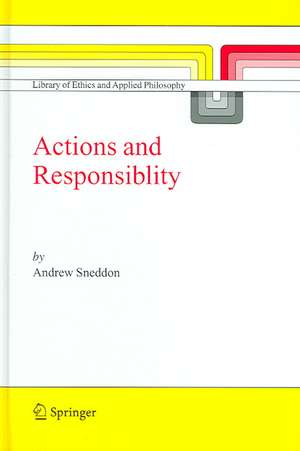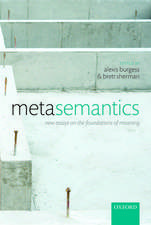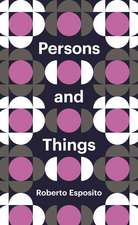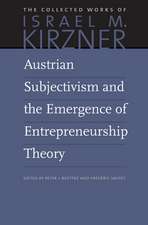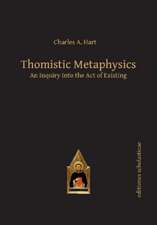Action and Responsibility: Library of Ethics and Applied Philosophy, cartea 18
Autor Andrew Sneddonen Limba Engleză Hardback – 24 oct 2005
| Toate formatele și edițiile | Preț | Express |
|---|---|---|
| Paperback (1) | 636.30 lei 43-57 zile | |
| SPRINGER NETHERLANDS – 30 noi 2010 | 636.30 lei 43-57 zile | |
| Hardback (1) | 642.68 lei 43-57 zile | |
| SPRINGER NETHERLANDS – 24 oct 2005 | 642.68 lei 43-57 zile |
Din seria Library of Ethics and Applied Philosophy
-
 Preț: 429.22 lei
Preț: 429.22 lei -
 Preț: 389.70 lei
Preț: 389.70 lei -
 Preț: 184.53 lei
Preț: 184.53 lei - 15%
 Preț: 647.40 lei
Preț: 647.40 lei - 15%
 Preț: 641.71 lei
Preț: 641.71 lei - 18%
 Preț: 951.47 lei
Preț: 951.47 lei - 18%
 Preț: 952.89 lei
Preț: 952.89 lei - 15%
 Preț: 645.79 lei
Preț: 645.79 lei - 15%
 Preț: 637.13 lei
Preț: 637.13 lei - 15%
 Preț: 644.95 lei
Preț: 644.95 lei - 15%
 Preț: 645.47 lei
Preț: 645.47 lei - 18%
 Preț: 895.76 lei
Preț: 895.76 lei - 18%
 Preț: 959.67 lei
Preț: 959.67 lei - 15%
 Preț: 642.51 lei
Preț: 642.51 lei - 15%
 Preț: 640.71 lei
Preț: 640.71 lei - 15%
 Preț: 642.68 lei
Preț: 642.68 lei - 15%
 Preț: 635.01 lei
Preț: 635.01 lei - 15%
 Preț: 638.43 lei
Preț: 638.43 lei - 24%
 Preț: 783.26 lei
Preț: 783.26 lei - 15%
 Preț: 634.18 lei
Preț: 634.18 lei - 15%
 Preț: 636.63 lei
Preț: 636.63 lei - 15%
 Preț: 638.57 lei
Preț: 638.57 lei - 15%
 Preț: 635.47 lei
Preț: 635.47 lei - 20%
 Preț: 565.64 lei
Preț: 565.64 lei - 15%
 Preț: 644.82 lei
Preț: 644.82 lei
Preț: 642.68 lei
Preț vechi: 756.09 lei
-15% Nou
Puncte Express: 964
Preț estimativ în valută:
123.02€ • 133.67$ • 103.40£
123.02€ • 133.67$ • 103.40£
Carte tipărită la comandă
Livrare economică 21 aprilie-05 mai
Preluare comenzi: 021 569.72.76
Specificații
ISBN-13: 9781402039966
ISBN-10: 1402039964
Pagini: 200
Ilustrații: X, 200 p.
Dimensiuni: 155 x 235 x 16 mm
Greutate: 0.48 kg
Ediția:2006
Editura: SPRINGER NETHERLANDS
Colecția Springer
Seria Library of Ethics and Applied Philosophy
Locul publicării:Dordrecht, Netherlands
ISBN-10: 1402039964
Pagini: 200
Ilustrații: X, 200 p.
Dimensiuni: 155 x 235 x 16 mm
Greutate: 0.48 kg
Ediția:2006
Editura: SPRINGER NETHERLANDS
Colecția Springer
Seria Library of Ethics and Applied Philosophy
Locul publicării:Dordrecht, Netherlands
Public țintă
Professional/practitionerCuprins
Two Questions.- Ascriptivism Resurrected: The Case for Ascriptivism.- Ascriptivism Defended: The Case Against Ascriptivism.- Responsibility and Causation I: Legal Responsibility.- Responsibility and Causation II: Moral Responsibility.- Foundationalism and the Production Question.- Foundationalism and the Status Question: Strong Productionism.- Nouveau Volitionism.- Weak Productionism.- Concluding Reflections on Ascriptivism and Action.
Recenzii
From the reviews:
"Studies in the philosophy of action have predominantly aimed to provide theories of how the action is explained or produced. … Sneddon aims to undermine this approach by separating out two fundamental questions that he argues should be distinguished in formulating theories of action. … The clear and methodical way the book is set out ensures that a reader unfamiliar with this philosophical territory can easily engage with the text and its main arguments … . This is well-constructed, thoroughly argued addition … ." (Natalie F. Banner, Metapsychology Online Reviews, September, 2007)
"Studies in the philosophy of action have predominantly aimed to provide theories of how the action is explained or produced. … Sneddon aims to undermine this approach by separating out two fundamental questions that he argues should be distinguished in formulating theories of action. … The clear and methodical way the book is set out ensures that a reader unfamiliar with this philosophical territory can easily engage with the text and its main arguments … . This is well-constructed, thoroughly argued addition … ." (Natalie F. Banner, Metapsychology Online Reviews, September, 2007)
Textul de pe ultima copertă
What makes an event count as an action? Typical answers appeal to the way in which the event was produced: e.g., perhaps an arm movement is an action when caused by mental states (in particular ways), but not when caused in other ways. Andrew Sneddon argues that this type of answer, which he calls "productionism", is methodologically and substantially mistaken. In particular, productionist answers to this question tend to be either individualistic or foundationalist, or both, without explicit defence. Instead, Sneddon offers an externalist, anti-foundationalist account of what makes an event count as an action, which he calls neo-ascriptivism, after the work of H.L.A. Hart. Specifically, Sneddon argues that our practices of attributing moral responsibility to each other are at least partly constitutive of events as actions.
Caracteristici
Application of externalism, in model from philosophy of mind, to philosophy of action Explicit diagnosis of and resistance to foundationalism in philosophy of action Connection of traditional concerns of philosophical study of action to moral philosophy Revision and defence of H.L.A. Hart’s ascriptivism about the nature of action Division of philosophy of action into production issues and status issues
